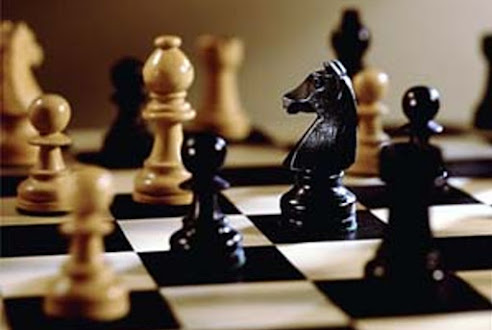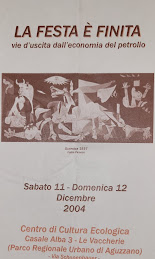The "Commedia dell'Arte" was a form of popular theatre, often played without a script. The masked actors would improvise according to the characteristics of their "persona", their mask.
There are many ways of predicting the future, and my remote ancestors, the Etruscan Haruspices, would do it by examining the liver of a freshly killed goat. I may have inherited from them my interest in the future, although I don't usually go around killing goats.
A gentler way of studying the future consists in considering the world as a stage. You know what the characters are, what they want, the way they usually behave. Then, when you put them on stage, they may act and create a drama even without following a script. It was the way the ancient Commedia dell'Arte worked. No script, actors would just play their part, according to their "persona." a term that in Latin means "mask" and that in our times came to be related to "personality,"Monday, January 10, 2022
How to keep gasoline prices low: bomb your gas station
An Italian fighter plane (note the "fasci" symbols on the wings) shot down in England in November 1940, during WW2 (source). Sending obsolete biplanes with open cockpits against the modern British Spitfires is one of the most glaring examples of military incompetence in history. Among other things, this old tragedy may give us hints about the current situation in the world and, in particular, why the consumers of fossil fuels tend to bomb their suppliers.
So, what's happening? As usual, interpretations are flying free in the memesphere: those evil Russians, the conspiracy of the Americans, it is all a fault of those ugly Greens who don't want nuclear energy, the financial lobby conspiring against the people, etcetera.
Let me try an approach a little different. Let me compare the current situation with that of the 1930s in Europe. Back then, fossil fuels were already fundamental for the functioning of the economy, but coal was the truly critical resource: not for nothing it was called "King Coal."
The coal revolution had started to appear in Europe in the 19th century. The countries that had large coal reserves, England, Germany, and France, could start their industrial revolutions. Others were cut off from the bonanza: the lack of coal was the main cause of the decline of the Southern Mediterranean countries. The Turkish empire, the "sick man of Europe," was not really sick, it was starved of coal.
But it was not strictly necessary to have coal mines to industrialize: it could be done by importing coal from the producing countries. Sailing ships could carry coal at low cost just about everywhere in the world, the problem was to transport it inland. Coal is bulky and heavy, the only way to do that is to have a good network of waterways. And having that depends on climate: the Southern Mediterranean countries are too dry to have it. But Northern Mediterranean countries had the network and could industrialize: it was the case of Italy.
Italy went through its industrial revolution much later than the Northern European countries but succeeded using British coal. That, of course, meant that Italy became dependent on British coal imports. Not a problem as long as the two countries were friendly to each other. Unfortunately, as it often happens in life, money may well take the priority over friendship.In the early 1920s, coal production in England reached a peak and couldn't be increased any more. That, of course, led to higher prices and cuts in exports. At that time, nobody could understand how depletion affects production (not even nowadays people do). So most Italians took the reduced coal supply from Britain as a geopolitical attack. It was an evil strategy of the decadent plutocracy called the Perfidious Albion, specifically designed to harm the young and growing southern countries.
The curious thing about this disastrous campaign is how it inaugurated a tradition: bombing one's supplier of fossil fuels. Italy's bombing of Britain was just the first of a long series: in August 1941, the British attacked and bombed Iran to secure the Iranian oil wells. They were much more successful than the Italians and Iran surrendered in less than a week. In the same year, in November, the Japanese attempted the same trick by bombing the United States, their main supplier of oil. The Japanese attack on Pearl Harbor was a tactical success, but a major strategic disaster, as we all know.
After WWII, the "Carter Doctrine" implied the strategic value of oil producers in the Middle East. One of the outcomes was the protracted bombing of Iraq from 1991, still intermittently ongoing. Other oil suppliers bombed by Western states were Libya and Syria.
Italy --> Western Europe (EU)
Britain --> Russia
Germany --> USA
(*) The Italian pilots had to fight with obsolete canvas biplanes: much slower than the British Spitfires. The Italian planes were also poorly armed, without an armored cockpit (the pilots used sandbags as makeshift armor), without sufficient heating, without the right training. And, of course, poor reliability of almost every mechanical system in a cold climate. Most of the Italian losses were due to mechanical failures, while no British planes are reported to have been lost to the Italians. If the definition of "epic" involves fighting against an overwhelmingly superior enemy, then the experience of the Italian force in the Battle of Britain can surely be defined in this way: an epic disaster. But whoever had this absurd idea deserved to be hanged, and at least one of them was.

























